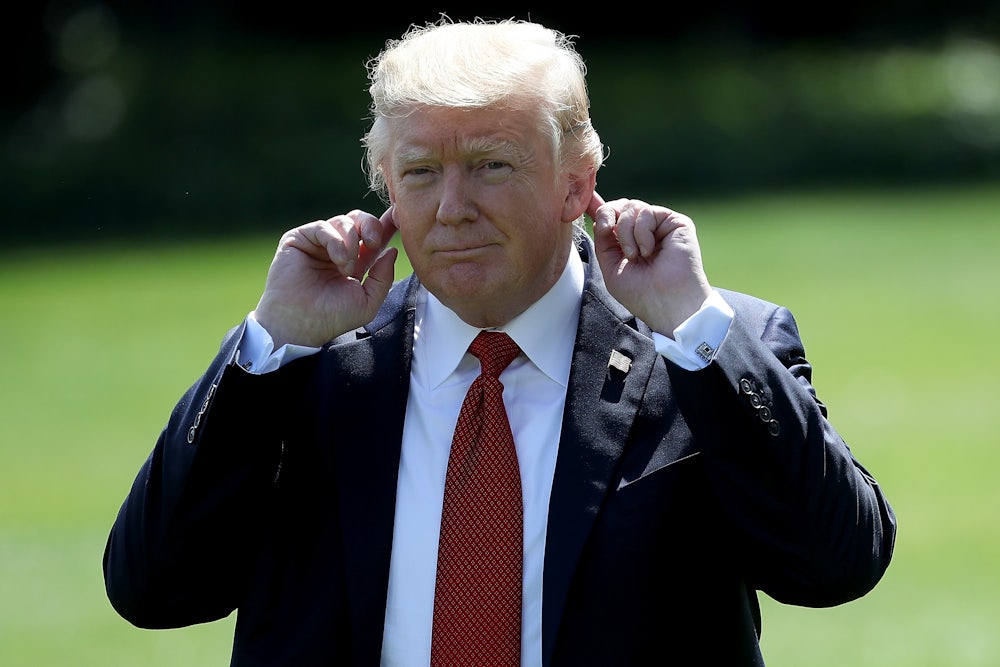Trump is, by every metric, not popular. In fact, he’s historically unpopular, with favorable ratings stuck in the mid-30s. While there does seem to be a sizable slice of the electorate that will stick with the president no matter what, their loyalty often seems to be based on annoying the libs rather than on Trump personally.
Over the last ten months, he’s alienated voters with his tweets, his defense of white supremacists, his incompetence and volatility, his inability to handle the basic tasks of governance, his persistent privileging of his own family and interests, his disdain for the rule of law, his abandonment of core campaign promises and embrace of unpopular far-right policies, and his personality and general appearance. Democrats are currently leading substantially in generic polls, meaning that they may see landslide victories in the 2018 midterm elections. Dozens of Democrats will run for president in 2020 because, if Trump is not removed from office before then, the presidential election looks like a sure thing.
But what if Trump is not unpopular enough? That’s what worries some Democratic operatives, according to a new Politico story:
Data from a range of focus groups and internal polls in swing states paint a difficult picture for the Democratic Party heading into the 2018 midterms and 2020 presidential election. It suggests that Democrats are naive if they believe Trump’s historically low approval numbers mean a landslide is coming....
No single Democratic attack on the president is sticking—not on his temperament, his lack of accomplishments or the deals he’s touted that have turned out to be less than advertised, like the president’s claim that he would keep Carrier from shutting down its Indianapolis plant and moving production to Mexico.
Worse news, they worry: Many of the ideas party leaders have latched on to in an attempt to appeal to their lost voters—free college tuition, raising the minimum wage to $15, even Medicaid for all—test poorly among voters outside the base. The people in these polls and focus groups tend to see those proposals as empty promises, at best.
A provocative headline—“Teflon Don Confounds Democrats”—obscures what’s basically a banal argument: No election is a sure thing and revving up the base sometimes backfires when making a broader appeal. And while Trump may be a terrible president, there is no single narrative of his terribleness.
But there’s plenty of evidence that every attack on Trump is sticking—that’s why he’s so unpopular. That might make sloganeering more difficult for strategists and consultants, but it’s ultimately beside the point: People hate Trump for lots of reasons and that’s broadly good for Democrats. And it already seems to be working. Democrats won two big special elections in New Hampshire and Oklahoma last night.
Dems flipped two very pro-Trump districts in special elections last night, There was a 28-point swing to Dems in NH. A 31-point swing in OK. pic.twitter.com/7nJuzpSjdf
— Nate Silver (@NateSilver538) September 13, 2017
Democrats still have a messaging problem and are struggling with the perception that they’re the party of the elite. That’s a big deal and it may be important in some congressional races. But right now it doesn’t matter that much because Trump is really, really unpopular. He might not ever be as unpopular as he should be, but for most Democrats he’s unpopular enough.
